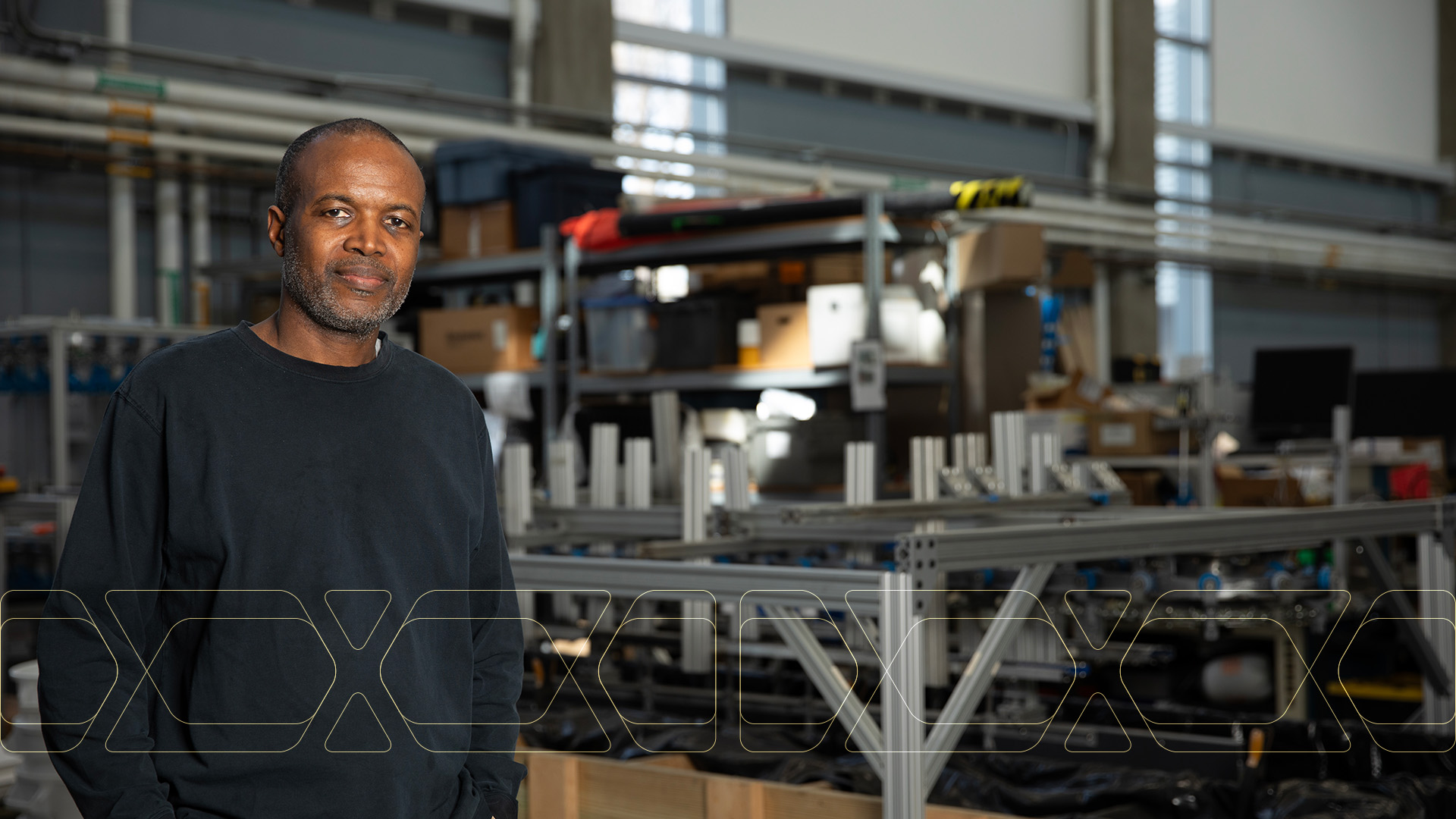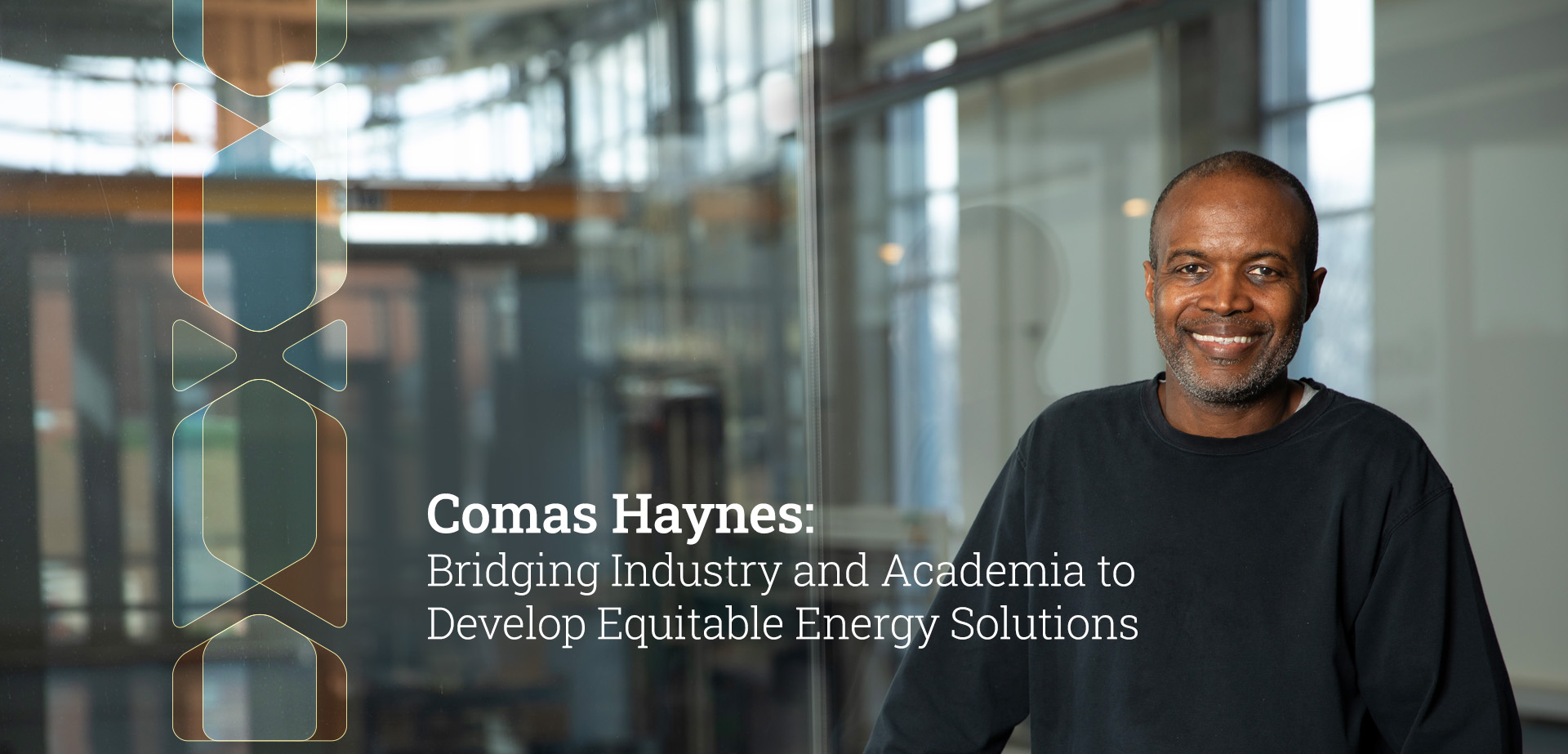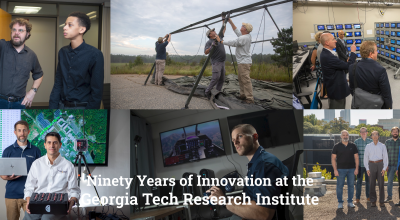Comas Haynes is a principal research engineer and the branch head of the Materials/Energy unit within the Intelligent Sustainable Technologies Division (ISTD) at the Georgia Tech Research Institute (GTRI). He also serves as the Hydrogen Initiative Lead at the Georgia Institute of Technology’s (Georgia Tech) Strategic Energy Institute (SEI), one of Tech's 10 Interdisciplinary Research Institutes (IRI), which bring together researchers from different disciplines to address topics of strategic importance.
Haynes was recently appointed to the U.S. Department of Energy’s inaugural Industrial Technology Innovation Advisory Committee (ITIAC) along with 17 other prominent science, business, academic and industry leaders, who will provide guidance on best practices for decarbonizing America’s industrial sector.
In a recent interview, Haynes shared how he plans to leverage his expertise in hydrogen and industrial efficiency in this role and why ensuring inclusivity in the development and advancement of clean energy solutions is paramount.
Q: Can you walk me through your ITIAC nomination and appointment process?
A: My nomination and appointment to ITIAC came about from my involvement with SEI at Georgia Tech, led by Tim Lieuwen, Regents Professor and SEI’s executive director. I became aware of the opportunity through SEI and submitted an application, supported by a nomination letter from Johney Green, the associate laboratory director for mechanical and thermal engineering sciences at the National Renewable Energy Lab. After an evaluation process that took about a year, I was honored to be officially appointed to this prestigious committee in February.
Q: What will your responsibilities be as a committee member?
A: As a committee member in this inaugural cohort, my responsibilities involve advising the Secretary of Energy directly on formulating strategies and roadmaps to facilitate the Department of Energy's efforts to guide industry towards achieving zero carbon emissions by 2050. It's an urgent and ambitious initiative given the pressing concerns of greenhouse gas emissions and climate change. I cannot overstate how genuinely humbled I am to have been given this opportunity.

Comas Haynes photo by Sean McNeil.
Q: Your research expertise in energy conservation and hydrogen technology makes it clear why you were a strong fit for this position. How do you plan to leverage your background to advance ITIAC’s emissions reduction goals?
A: My role as the leader of the Georgia Tech Industrial Assessment Center (IAC)and the Southeast IACs Center of Excellence (both funded by the Department of Energy) has given me a deep understanding of energy efficiency strategies. Through these centers, we work directly with small and medium-sized manufacturers, and other IACs within the region, to identify energy-saving opportunities and implement cost-effective solutions. This initiative also involves training students as the next wave of energy engineering professionals.
In addition, my involvement in Georgia Tech's SEI Hydrogen Initiative positions me to offer expertise in alternative fuel solutions. Hydrogen, as a clean energy source, presents a promising avenue for decarbonizing various sectors. As an example, my focus on fuel cells, an electrochemical technology powered by hydrogen, underscores the potential for emissions-free power generation and transportation.
By integrating energy efficiency practices and promoting the adoption of alternative fuels like hydrogen, I envision making substantive contributions to ITIAC's mission of advancing emissions reduction goals. My goal is to leverage these technical capabilities to guide industries towards sustainable and environmentally responsible practices, ultimately driving significant progress towards a low-carbon future.

Comas Haynes photo by Sean McNeil.
Q: Besides Georgia Tech, there are only a few other academic institutions (Arizona State, Stanford and University of California, Santa Barbara) represented among the committee members. Your dual affiliation with academia and applied research through Tech and GTRI is intriguing. How do you envision utilizing your unique perspective in this role?
A: GTRI's significance in the Department of Defense realm is well-established; however, I believe there's room for expansion into other key agencies. It's particularly special for GTRI, hence Georgia Tech, to secure a seat at the table of such a prestigious Department of Energy advisory committee, directly reporting to the Secretary. My academic-side activities (e.g., SEI, instruction within the engineering college, IAC-related activities, student advisement) allow me to take a blend of Georgia Tech perspectives (i.e., GTRI/RI faculty, grad and undergrad students) along with me to serve in the ITIAC.
Q: Your active engagement with Historically Black Colleges and Universities (HBCUs) and Minority-Serving Institutions (MSIs) is impressive. Could you elaborate on this work and how you believe hydrogen equity fits into this critical area?
A: My journey has led me from being a beneficiary of these initiatives to now a benefactor. I've been privileged to participate in various projects, particularly with the Department of Energy, while collaborating with institutions like my alma mater, Florida A&M University, and Clark Atlanta University. Through these partnerships, we're not only co-investigating clean energy technologies but also nurturing a pool of STEM talent, which will be essential for addressing our many energy needs.
I firmly believe that everyone should benefit from clean energy technology. This goes beyond being just being an end user; it means having a seat at the table in developing these technologies, collaborating on research and development, and ensuring that underrepresented groups are active participants in co-inventing these solutions.
Writer: Anna Akins (anna.akins@gtri.gatech.edu)
GTRI Communications
Georgia Tech Research Institute
Atlanta, Georgia USA
The Georgia Tech Research Institute (GTRI) is the nonprofit, applied research division of the Georgia Institute of Technology (Georgia Tech). Founded in 1934 as the Engineering Experiment Station, GTRI has grown to more than 2,900 employees, supporting eight laboratories in over 20 locations around the country and performing more than $940 million of problem-solving research annually for government and industry. GTRI's renowned researchers combine science, engineering, economics, policy, and technical expertise to solve complex problems for the U.S. federal government, state, and industry.




